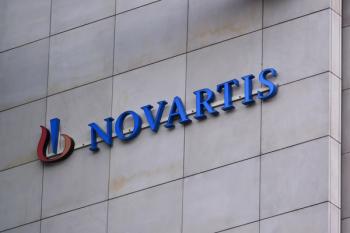
- Pharmaceutical Executive-03-01-2021
- Volume 41
- Issue 3
Why ESG Performance Metrics Matter
Meaningful biopharma sustainability metrics are a crucial challenge.
A wave of new sustainability reporting demands is heading toward our shore, reflecting societal concerns about environmental risks, social impacts, and effective corporate governance, as we seek to reach the UN Sustainable Development Goals (SDGs) and recover from a pandemic. Leading investors like BlackRock, analysts like MSCI and the Access to Medicines Foundation, standard-setters like the Sustainability Accounting Standards Board (SASB), and many national regulators, are all seeking to improve and standardize environmental, social, and governance (ESG) reporting. Like a wave still out at sea, these new demands are barely visible except to specialists, but they are building up and will have a major impact on biopharma, with investor demands for improved transparency and comparable disclosures front-running the process.
What gets measured gets managed—for good or ill. More information and standardized metrics for ESG performance should be good, right? But metrics and standards that aren’t well-aligned with the needs of our sector could add a new layer of problems over the ones we already have with fragmented and non-comparable disclosures. And here we have a race going on.
On one side, several initiatives aim to define streamlined metrics that are meaningful and decision-useful to both biopharma companies and investors for communicating about ESG performance, long-term value, and effective governance. SASB, for example, has begun a refresh of their standard to address several identified gaps. Industry associations like BIO and the International Federation of Pharmaceutical Manufacturers & Associations have begun member-driven dialogs on topics like drug access, diversity and inclusion in clinical trials, and patient health. And the Biopharma Sustainability Roundtable (BSRT), a group I co-lead, is preparing the next release of its Biopharma Investor ESG Communications Guidance, which will include best-thinking metrics and identify remaining gaps.
On the other side, most of the high-profile ESG disclosure and standard-setting initiatives now gaining momentum cut across sectors, and aren’t aligned with biopharma-specific challenges and opportunities. Perhaps unavoidable, given their broad scope, it also means that as a sector we must actively and urgently contribute. Without an effective voice at the table, we could end up in an even more complicated and unsatisfactory situation, with new compliance requirements in addition to non-comparable internal metrics. Effective sustainability governance in 2021 must include contributing to these ESG standards initiatives.
Last year, for example, the World Economic Forum (WEF) and International Business Council (IBC) released their Stakeholder Capitalism Metrics. Developed in collaboration with partners including the “Big Four” accounting firms, they are offered as a global solution, universal disclosure topics that address the “four pillars” of people, planet, prosperity, and governance. They identify 21 “core metrics” for monitoring internal company performance, and 34 “expanded metrics” that cover a wider value chain scope and sustainable value creation. They expect companies to report on these same pillars and topics across sectors and regions, hopefully resulting in improved comparability.
While the WEF/IBC effort to define a universal set of metrics is laudable, and illustrates the strong interest in convergence across standards and comparability across businesses, their metrics are necessarily very general. And only two biopharma companies, Novo Nordisk and Takeda, were part of their development. So, core metrics for “people” include diversity and inclusion, but only within a company, not the broader impact of diversity in clinical trials or equitable access to healthcare. Core metrics for “prosperity” include direct economic contributions, but not the value of better population health.
The challenge for biopharma is to accelerate our sector-focused efforts developing meaningful ESG performance indicators, while also ensuring that they are incorporated into any overarching international standards.
How to contribute? Engage with industry associations seeking to influence development of national and international standards and policies. Join sector-specific working groups like BSRT’s Biopharma Investor ESG Communications Initiative. And participate in global business forums like WEF/IBC to bring a stronger biopharma voice into their discussions. ESG metrics may seem a wonky and specialized topic, but metrics matter.
Sandor Schoichet, Director, Meridian Management Consultants, and Co-Founder of the Biopharma Sustainability Roundtable. He can be reached at
Articles in this issue
almost 5 years ago
The Amazon Effect: A Data-Fueled Customer Experiencealmost 5 years ago
Pharma and Biotech’s 2020 Full-Year Viewalmost 5 years ago
Persevering for Patientsalmost 5 years ago
Biopharma’s Reputation Gets a Well-Earned Shot in the Armalmost 5 years ago
IP and Capitalalmost 5 years ago
IP and COVID-19almost 5 years ago
Pharma Steps Up for Public Health Inequitiesalmost 5 years ago
FDA Relays Recent Achievements, Maps Plans for Progressalmost 5 years ago
IP and Collaborationalmost 5 years ago
Pharmaceutical Executive, March 2021 Issue (PDF)Newsletter
Lead with insight with the Pharmaceutical Executive newsletter, featuring strategic analysis, leadership trends, and market intelligence for biopharma decision-makers.




